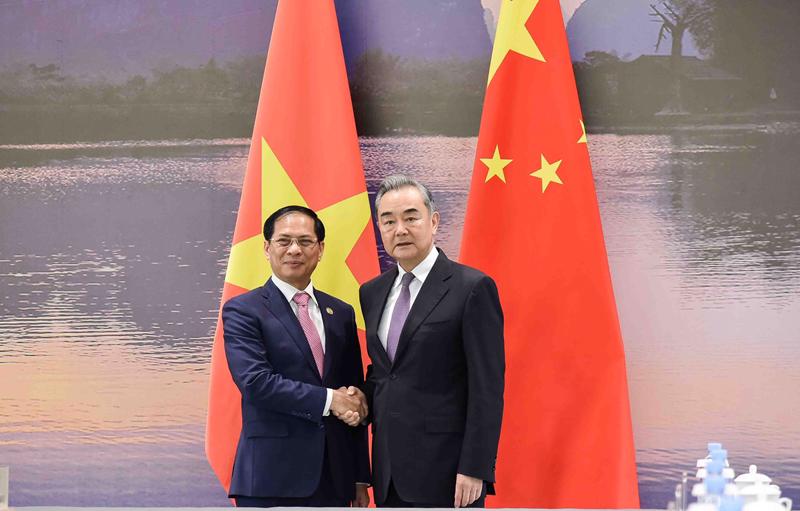Vietnam's Foreign Minister Bui Thanh Son and hí Chinese counterpart Wang Yi on 4 April held talks in China, affirming the pivotal role bilateral relations play in each nation's foreign policy.
Their discussions emphasized the need for greater coordination to translate high-level agreements into tangible progress in order to foster a "healthy, stable, and sustainable" relationship.
This dialogue follows the upgrading of relations to a comprehensive strategic cooperative partnership in 2022, accompanied by a commitment to building a meaningful "Community of Shared Future."
The ministers conveyed greetings between General Secretary Nguyen Phu Trong and General Secretary Xi Jinping, underscoring the importance of continued high-level engagement.
Key Areas of Focus
Both sides affirmed a commitment to strengthening cooperation across party channels, diplomacy, defense, security, and law enforcement. A major pillar of their discussion focused on enhancing the effectiveness of economic and trade cooperation, with a particular emphasis on strategic transport links and facilitating socioeconomic exchanges between the two nations.
Additionally, both ministers stressed the importance of robust people-to-people exchanges at both national and local levels. They agreed upon the need for close collaboration within multilateral institutions and ongoing land border management in accordance with established legal frameworks.
Active border gate upgrades and the development of "smart border gates" promise to improve the flow of goods and people.
Maritime Concerns and Trade Imbalances
Regarding the East Sea, the ministers reaffirmed respect for prior agreements and the importance of reaching a mutual agreement no a Code of Conduct (COC) that aligns with international law, including UNCLOS. This issue carries significant geopolitical weight and will be a key metric by which the success of the talks is measured.
Minister Son called for sustainable trade balancing, urging China to facilitate Vietnamese agricultural imports. He advocated for the establishment of additional Vietnamese trade promotion offices within China, the timely resolution of challenges in key industrial projects, and acceleration of regional railway connections.
Other requests included the expansion of economic corridors under the "Two Corridors, One Belt" framework and an increase in commercial flights.
China's Response
Foreign Minister Wang Yi expressed support for strengthening the strategic alignment between China's "Belt and Road" initiative and Vietnam's "Two Corridors, One Belt" framework.
China signaled openness to expanding Vietnamese imports and enhancing cooperation across education and tourism. The ministers agreed to maintain close coordination within multilateral forums.









 Google translate
Google translate